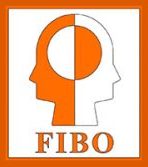หลักสูตร

สถาบันวิทยาการหุ่นยนต์ภาคสนาม มหาวิทยาลัยเทคโนโลยีพระจอมเกล้าธนบุรี เป็นสถาบันแห่งแรกในประเทศไทยที่มีการเปิดหลักสูตรที่ให้ปริญญาเฉพาะทางทางด้านวิศวกรรมหุ่นยนต์และระบบอัตโนมัติ โดยในระยะแรกมีเพียงหลักสูตรในระดับปริญญาโทและปริญญาเอก ในปัจจุบันทางสถาบันฯ ได้เล็งเห็นแนวโน้มความต้องการใช้บุคลากรและเทคโนโลยีด้านวิทยาการหุ่นยนต์และระบบอัตโนมัติในภาคอุตสาหกรรมที่เพิ่มมากขึ้น สถาบันฯ จึงได้ริเริ่มเปิดหลักสูตรวิศวกรรมศาสตรบัณฑิต สาขาวิศวกรรมหุ่นยนต์และระบบอัตโนมัติขึ้น โดยเริ่มเปิดการเรียนการสอนเป็นปีแรกในปี พ.ศ. 2557
อย่างไรก็ตาม ในปัจจุบันมีความตื่นตัวทางด้านเทคนิคการจัดการเรียนการสอนเพื่อรองรับนักเรียนนักศึกษาในยุคศตวรรษที่ 21 ซึ่งเปลี่ยนจากการเน้นการป้อนเนื้อหาวิชาความรู้ให้นักเรียนนักศึกษาอย่างเดียว เป็นการสนับสนุนการเรียนรู้ที่นักศึกษาได้มีส่วนร่วมในการเรียนรู้มากขึ้น รู้สึกเป็นส่วนหนึ่งกับการเรียนรู้มากขึ้น สถาบันฯ เห็นความสำคัญของการออกแบบหลักสูตรแบบเน้นการสร้างความมีส่วนร่วมของนักศึกษาในชั้นเรียนเป็นหลัก จึงมีหลักในการจัดการเรียนการสอน 3 อย่าง ได้แก่
1. การสร้างแรงบันดาลใจในการเรียนรู้ (The will to learn) ด้วยแนวคิดที่เชื่อว่าการเริ่มต้นการเรียนรู้ด้วยการเสริมสร้างแรงจูงใจในการเรียนรู้ และกระตุ้นความอยากเรียนรู้ของนักศึกษาจะทำให้นักศึกษารู้สึกอยากมีส่วนร่วมในการเรียนรู้ สนุกกับการเรียนรู้ และสามารถเรียนรู้ได้ดีขึ้น โดยในแต่ละชั้นปีจะมีธีมหลักในการพัฒนานักศึกษา ได้แก่ ชั้นปีที่ 1 จะเน้นการสร้างแรงบันดาลใจและการเปิดโลกทัศน์ (Intrinsic Motivation) ปีที่ 2 เน้นเสริมสร้างความคิดสร้างสรรค์ให้แก่นักศึกษา (Creative Thinking) ปีที่ 3 เน้นเสริมสร้างทักษะให้นักศึกษาสามารถเรียนรู้ได้ด้วยตนเอง (Self-Directed Learning) และปีที่ 4 เน้นการปูทางสู่เส้นทางอาชีพและอนาคตของนักศึกษา (Identity development)

2. การบูรณาการการเรียนรู้ (Integrative Learning) เนื่องจากโดยเนื้อหาของหลักสูตรวิศวกรรมหุ่นยนต์และระบบอัตโนมัตินั้นมีความเป็นสหวิทยาการ นักศึกษาจึงควรมีทักษะในการบูรณาการทักษะและความรู้ทางด้านวิศวกรรมในสามสาขาหลัก ได้แก่ เครื่องกล ไฟฟ้า และคอมพิวเตอร์ เห็นความเชื่อมโยงของเนื้อหาและสามารถประยุกต์ใช้ความรู้จากรายวิชาต่างๆ ข้ามสาขาได้ ด้วยเหตุนี้สถาบันฯ จึงจัดการเรียนการสอนในรูปแบบโมดูล โดยประกอบด้วย 10 โมดูลใน 8 ภาคการศึกษา ในแต่ละโมดูลจะประกอบไปด้วย 2-3 รายวิชาในภาคการศึกษาเดียวกัน และนักศึกษาจะได้ทำโครงงานอย่างน้อย 1 โครงงานในแต่ละโมดูล ทำให้ในแต่ละภาคการศึกษา นักศึกษาจะได้ทำโครงงานใหญ่ 1 – 2 โครงงาน ซึ่งจะเป็นโครงงานร่วมกันระหว่างวิชาที่นักศึกษาเรียนในภาคการศึกษานั้น ซึ่งการจัดการเรียนการสอนในรูปแบบของโมดูลนี้ มีวัตถุประสงค์หลักเพื่อเป็นกลไกให้นักศึกษาได้เข้าใจความเชื่อมโยงระหว่างเนื้อหาวิชาต่างๆ ที่เรียนในแต่ละภาคการศึกษา โดยในการวางแผนและพัฒนาแต่ละโมดูล อาจารย์ในแต่ละรายวิชาภายใต้โมดูลเดียวกันจะได้ออกแบบโมดูลร่วมกัน ทำให้เกิดความสอดคล้องและการเชื่อมโยงของเนื้อหาในแต่ละรายวิชาซึ่งอาจไม่เกิดขึ้นหากไม่มีการจัดการเรียนการสอนในลักษณะโมดูล นอกจากนี้การมอบหมายโครงงานใหญ่หนึ่งโครงงานในระดับโมดูลแทนโครงงานเล็กจำนวนหลายโครงงานในระดับรายวิชา จะทำให้นักศึกษาได้มีโอกาสทำโครงงานที่มีความเข้มข้นมากขึ้น และสามารถนำความรู้ที่เรียนในแต่ละวิชามาบูรณาการเพื่อไปประยุกต์ใช้จริงผ่านการทำโครงงานในโมดูลได้

3. การเรียนรู้ผ่านการลงมือทำ (Learning by Doing) หลักสูตรของทางสถาบันฯ จะเน้นการเพิ่มทักษะและความชำนาญของนักศึกษาจากการลงมือทำจริง (Hands-on Skills) และสนับสนุนทักษะการเรียนรู้ด้วยตนเอง (Self-directed Learning) ของนักศึกษาผ่านการทำโครงงานต่างๆ (Project-based Learning) โดยมีอาจารย์มีหน้าที่เป็นผู้ให้คำแนะนำ ให้นักศึกษาได้ฝึกการทำงานเป็นทีมและเสริมทักษะในการสื่อสาร และสร้างบรรยากาศการเรียนรู้ที่เสริมสร้างแรงจูงใจในการเรียนรู้ให้แก่นักศึกษา ซึ่งสอดคล้องกับแนวคิดในการพัฒนาหลักสูตรที่เหมาะสมกับการเรียนรู้ของนักศึกษาในยุคศตวรรษที่ 21

นอกจากนี้ ทางสถาบันฯ ได้วางหลักสูตรเพื่อปูเส้นทางการประกอบอาชีพให้นักศึกษา โดยเปิดโอกาสให้นักศึกษาปีที่ 3 และ 4 สามารถเลือกเรียนวิชาเลือกได้ตามความถนัด และความสนใจในเส้นทางอาชีพของตนเอง ใน 3 ด้าน ประกอบด้วย
1. นักศึกษาที่สนใจเรียนต่อทางด้านวิทยาการหุ่นยนต์และระบบอัตโนมัติในระดับ ป.โท และ เอก สามารถเลือกเรียนวิชาขั้นสูงทางด้านวิทยาการหุ่นยนต์และระบบอัตโนมัติได้ ผ่านวิชา Special Topics เหมาะสำหรับนักศึกษาที่ต้องการต่อยอดความรู้เพื่อเป็นนักวิจัยและอาจารย์ในอนาคต
2. นักศึกษาที่สนใจต่อยอดเป็นผู้ประกอบการทางเทคโนโลยี ทางหลักสูตรมีความร่วมมือกับหลักสูตรธุรกิจเทคโนโลยี เปิดวิชาเลือกเพื่อปูพื้นฐานทางด้านธุรกิจเทคโนโลยีให้แก่นักศึกษา
3. นักศึกษาที่สนใจทำงานในภาคอุตสาหกรรม หลักสูตรมีวิชา Work-integrated Learning เพื่อให้นักศึกษาได้มีโอกาสเข้าฝึกงานในบริษัทอุตสาหกรรมต่าง ๆ เพื่อทำโครงงานจากโจทย์อุตสาหกรรมจริง โดยอุตสาหกรรมที่เกี่ยวข้องทางด้านวิทยาการหุ่นยนต์และระบบอัตโนมัติมีหลากหลายประเภท ทั้งอุตสาหกรรมไฟฟ้าและอิเล็คทรอนิกส์ อุตสาหกรรมยานยนต์ อุตสาหกรรมการแพทย์ อุตสาหกรรมอาหารและการเกษตร และอุตสาหกรรมและธุรกิจด้านการศึกษาและความบันเทิง เป็นต้น
